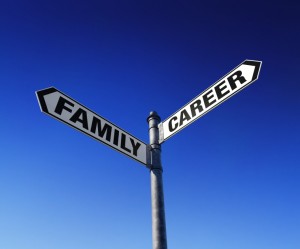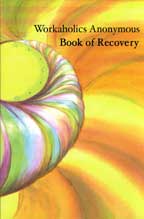I have paid a dear price for workaholism in my life. I’m not going to be enslaved by its power any more. I have a Higher Power and His Name is Jesus. He has set me free from drugs and I know He can set me free from this. I decided that my own will power and creative ideas were not enough, so I searched out Workaholics Anonymous, not knowing for sure if such a group exists. Sure enough, it does. And I am extremely grateful for the insight and support this group brings to the table. I’ve been going to these meetings for about three months now. They meet in downtown Austin on Tuesdays at St. David’s Episcopal Church. It’s a drive from Lago Vista to get there and park, but it is worth it.
I’ll discuss and blog more as time goes on. And, in fact, I plan on starting up a WA group here in Lago Vista. More on that later. For now, I’ll share something I read during my first meeting (out of the incredibly insightful recovery book we read from each week – Workaholics Anonymous, Book of Recovery). These are THE SIGNPOSTS OF WORKAHOLISM:
- We find it hard to love and accept ourselves. Work has become our means of gaining approval, finding our identity and justifying our existence.
- We use work to escape our feelings. Thus, we deprive ourselves of knowing what we truly want and need.
- By overworking, we neglect our health, relationships, recreations and spirituality. Even when we are not working, we are thinking of our next task. Most of our activities are work-related. We deny ourselves the enjoyment of a balanced and varied life.
- We use work as a way to deal with the uncertainties of life. We lie awake worrying; we over-plan and over-organize. By being unwilling to surrender control, we lose our spontaneity, creativity and flexibility.
- Many of us grew up in chaotic homes. Stress and intensity feel normal to us. We seek out these conditions in the workplace. We create crises and get adrenaline highs by overworking to resolve them. Then we suffer withdrawals and become anxious and depressed. Such mood swings destroy our peace of mind.
- Work has become an addiction. We lie to ourselves and to others about the amount we do. We hoard work to insure that we will always be busy and never bored. We fear free time and vacations and find them painful instead of refreshing.
- Instead of being a haven, our home is an extension of our workplace. Our family and friends often arrange their time with us around our work, vainly hoping we will finish it and then can be with them.
- We make unreasonable demands upon ourselves. We aren’t aware of any difference between job-imposed and self-imposed pressure. By over-scheduling our lives, we become driven, racing to beat the clock, fearful that we will get behind, and binge-work in order to catch up. Our attention is fragmented by trying to do several things at once. Our inability to pace ourselves leads to breakdown and burnout. We rob ourselves of the enjoyment of conclusion and rest.
- We tend to be perfectionistic. We don’t accept mistakes as part of being human and find it hard to ask for help. Because we believe no one can meet our standards, we have difficulty delegating and so do more than our share of the work. Thinking ourselves indispensable often prevents our progress. Unrealistic expectations often cheat us of contentment.
- We tend to be over-serious and responsible. ALl activity must be purposeful. We find it hard to relax and just be; we feel guilty and restless when not working. Because we often work at our play, we rarely experience re-creation and renewal. We neglect our sense of humor and rarely enjoy the healing power of laughter.
- Waiting is hard for us. We are more interested in results than process, in quantity than quality. Our impatience often distorts our work by not allowing it proper timing.
- Many of us are concerned with image. We think that looking busy makes people think we are important and gains their admiration. By seeking others’ approval of us, we lose ourselves.
from Workaholics Anonymous Book of Recovery


Comments